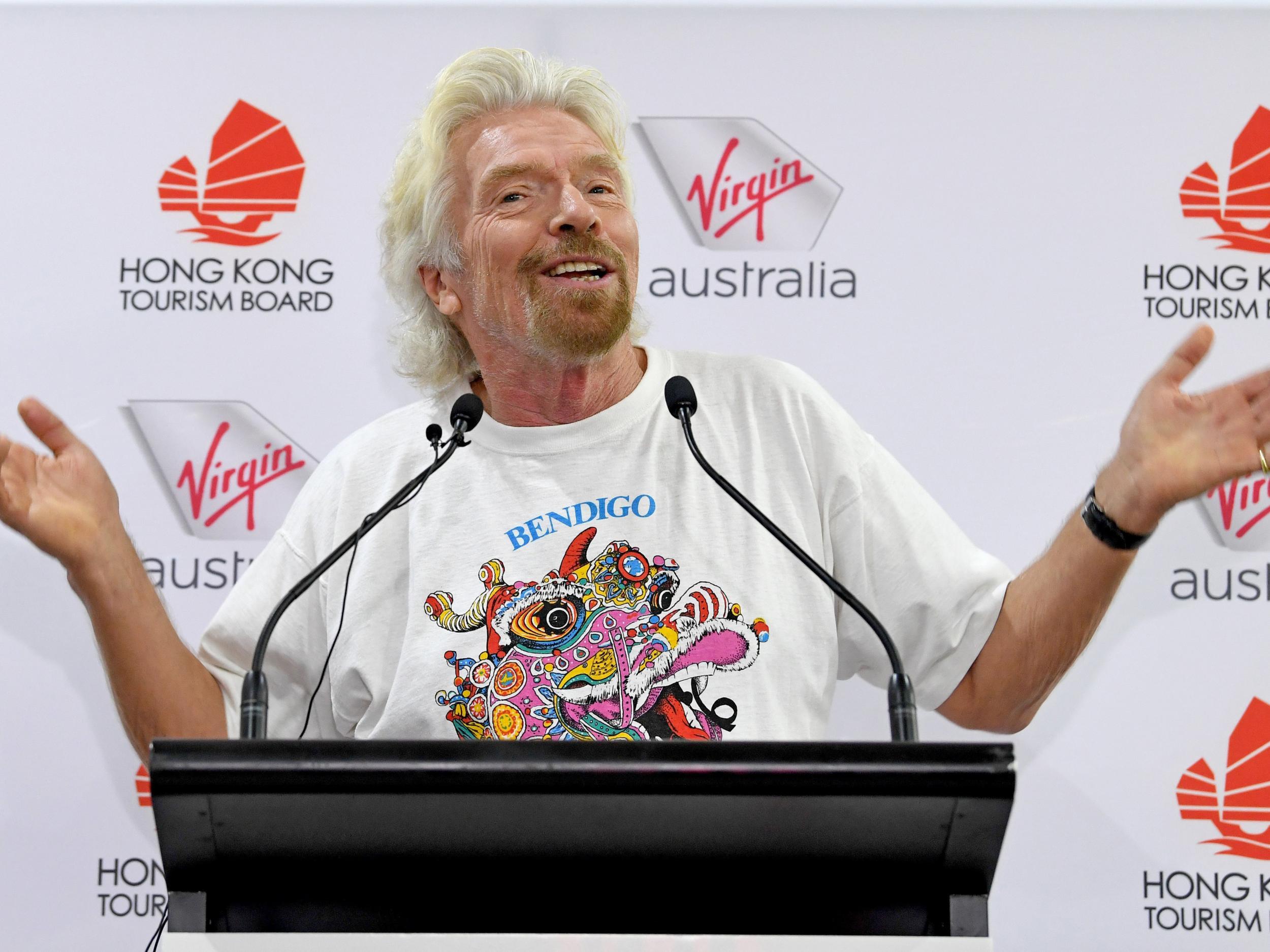No, Richard Branson – you didn't 'create your own luck'. This stinks of white male privilege
We have so many films about white people who 'make it' against all the odds. The stakes suddenly drop when you realise the odds are in fact stacked in their favour


Richard Branson really, really wants you to know that he is not valued at $5bn through sheer luck.
“The way I see it, luck is a misunderstood concept,” he wrote after the FastTrack 100 Awards, where he had been sitting next to three white male CEOs and one man of colour.
“We must all create our own luck by taking the necessary risks to open the door to change, progression and success.”
This blog post came in response to a comment at the conference by Simon Arora, Chief Executive of B&M Retail, who said: “Everyone has lucky breaks in life. The reason the four of us are sitting on this stage and many others aren't is because we capitalised on those lucky breaks."
Pass the Febreze, because this stinks of white male privilege.
Male entrepreneurs often talk as if there is a secret, magic sauce that will separate the ranks of human being into the fabulous entrepreneurs and the bog standard, mere mortals who are happier slouching on the sofa after their 9 to 5.
It’s a dangerous rhetoric, which has inflated the egos of the likes of Donald Trump, made certain people into untouchable demi-Gods and has also, helpfully, carved a smooth path for the ranks of young, ambitious white men behind them.
Branson’s scorning of luck and privilege is mirrored in the highest echelons of society and business. It’s a self-protection mechanism. Where in the handbook of success does it speak about institutionalised racism, sexism or cycles of poverty?
People love a rag to riches story. It’s why we have so many films about white people who “make it” against all the odds. Just look at The Dallas Buyers Club, or The Founder, about the white guy who started McDonald’s. The stakes suddenly drop to BORING when you realise the odds are in fact stacked in their favour.
Arguing that successful entrepreneurship is based on merit is like saying that “white men are better”. White men dominate in most areas of the world, from politics to Silicon Valley to the boards of the Fortune 500 companies. Claiming that men are better, or more capable, or more intelligent, is less palatable and generally unacceptable – as discovered by this Polish MEP. The theory of men’s superiority also lacks any unbiased scientific evidence, although there are some studies that try anyway – see this Erasmus survey which claims that men have a higher IQ on average.
But then, white men dominate history and science too.

The oft-touted entrepreneur philosophy that success comes if you are willing to take risks is bogus. Define the risk. Define the consequence. Define why women are taught from the first months of their coming into the world that they should be nice, polite and not cause a fuss. When Branson tweets his opinions about money and culture, his social media is not flooded with rape threats.
And when successful men screw up in business, they are treated differently. After the financial crash of 2008, for example, no banker (except in Iceland) went to prison. Donald Trump called himself the “king of debt” and he is now President. A man died when Branson’s Virgin Galactic SpaceShipTwo rocket crashed to the ground in 2014. It was a tragedy for everyone involved. But if a woman came back to that project with the same determination as Branson did, I wonder if she would be seen less as an inspirational risk taker and more of a callous, cold-blooded she-devil.
There are plenty of women who hate this kind of article as they don’t want to see themselves as a “victim”. It is the same mindset as men who say they operate in a meritocracy. They are all complicit in a deeply misogynistic world, desperate to “own” their success and keep it in a locked safe where no one else can lay claim to it.
I was once told all you needed to be successful was a good haircut. Thinking back, this male editor’s advice to conform made a lot of sense. If Branson really wanted to “open the door to change, progression and success”, then he should start by admitting that he is not as good as he thinks he is.
Join our commenting forum
Join thought-provoking conversations, follow other Independent readers and see their replies
Comments
Bookmark popover
Removed from bookmarks